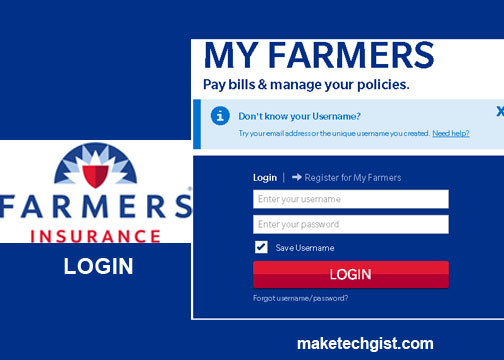Your insurance coverage may need to adjust as your life changes. However, what should you do if these modifications take place outside of the standard open enrollment window? You might have the opportunity to update your insurance during a special enrollment period if your change in circumstances qualifies as a qualifying life event (QLE). Furthermore, continue reading to understand how qualifying life event insurance works, with some examples, and discover what steps you need to take to change your policy.

What Is a Qualifying Life Event for Insurance?
A qualifying life event for insurance is a change in living circumstances that allows a person to enroll in health insurance outside of the yearly Open Enrollment Period. Major life events such as marriage, divorce, and parenthood can impact an individual’s requirement for health insurance. Moreover, people in these situations are eligible to purchase or modify a health plan right away.
Additionally, qualifying life event insurance may provide you with up to 60 days, depending on your plan, to enroll in new coverage or make adjustments to your existing one. Furthermore, if you have gone through a qualifying life event, review your policy papers, contact your employer, or give the number on your member ID card a call for assistance.
Among the qualifying life events are (but not exclusively):
- Getting married.
- Divorce.
- Having a child or adopting one.
- Death in your health plan co-beneficiary.
- Transferring to a new location.
- Obtaining American citizenship.
- Getting 26.
- Reaching the age of 65.
- Changing work status.
- Absence of health insurance.
How Does Qualifying Life Event for Insurance Work?
Open enrollment is when you can enroll in or change your dental, health, and other insurance benefits through your employer benefits package or the healthcare marketplace. When you sign up for or update your insurance outside of this window, you usually need to have undergone a qualifying life event (QLE).
In that case, you enter what’s known as a special enrollment period (SEP), which means that even though it’s not open enrollment, you can still enroll in insurance or change your current insurance elections. QLEs can be stressful or welcome, but they indicate a change that needs to be made to your coverage.
Types of Qualifying Life Events for Insurance
A qualifying life event allows a person to modify their health insurance policy to reflect their changing needs. These occasions recognize that life is dynamic and offer a safety net to ensure that people and their families always have access to critical medical care. These modifications may be prompted by a variety of qualifying life events, including:
Loss of health insurance
A QLE is losing health insurance coverage. This could occur if you are:
- Reaching the age of 26 and being dropped from a parent’s insurance plan.
- Losing a student plan, COBRA, or employment-based coverage.
- Losing one’s eligibility for the children’s health insurance program (CHIP), Medicare, or Medicaid.
- Being unable to pay premiums and losing health insurance for any other reason.
Modifications to the household
A few modifications made to the home will cause a QLE, including:
- Getting married, splitting up, or divorcing.
- Getting a foster child, adopting a child, or having a baby.
- The death of a policyholder under your health insurance.
Relocations
You might be eligible for a QLE if you move. As an illustration:
- Relocating to a new zip code or county.
- Moving to or from school for students.
- For temporary employees, traveling to and from a place of employment.
- Relocating to or from interim housing or a shelter.
- Relocating to the United States from a foreign or U.S. territory.
Modifications in your eligibility
In addition to the previously mentioned instances, the following other situations are regarded as qualifying life events:
- Income fluctuations that could impact your Medicaid coverage eligibility.
- Having an ACA plan already and being qualified for tax subsidies that reduce premiums.
- Joining a tribe that has received government recognition.
- Obtaining Marketplace coverage eligibility for newly naturalized citizens.
- When a member of AmeriCorps VISTA begins or ends service.
- Being released from military service.
- Getting out of jail or prison.
What Are Examples of Qualifying Life Events for Insurance
Qualifying life events in the individual/family market (which often covers both on- and off-exchange coverage) include:
- Birth or adoption of child marriage (as well as divorce, if the divorce results in the loss of other coverage or if the exchange or insurer includes it as a qualifying event).
- Loss of additional coverage provided that it is regarded as minimal essential coverage.
- A long-term relocation to a place with a variety of health plans (if you had insurance before the move).
- An alteration in earnings that modifies your eligibility for subsidies (which might not be applicable off-exchange in states with independent exchanges).
- A rise in earnings that eliminates the Medicaid coverage gap.
- The non-calendar-year renewal of a grandfathered or grand-mothered plan
- Becoming a citizen or lawfully present resident of the United States (only applicable in the exchange).
Qualifying events for special enrollment periods requires proof of life-changing events to insurance providers, typically through supporting documentation, for policy enrollment or coverage changes.
How Long Do You Have for a Qualifying Event?
You have sixty days following the occurrence of a qualifying life event to choose a plan from the individual/family market or transfer to another plan. However, in certain situations, there may be restrictions on plan transfers during special enrollment periods. You can have a special enrollment window that starts 60 days before the event and lasts for 60 days following it, depending on the qualifying event.





